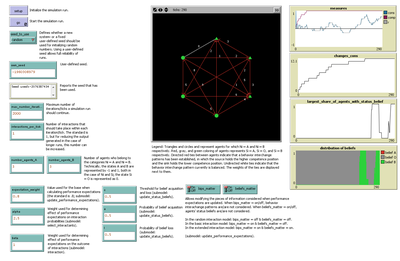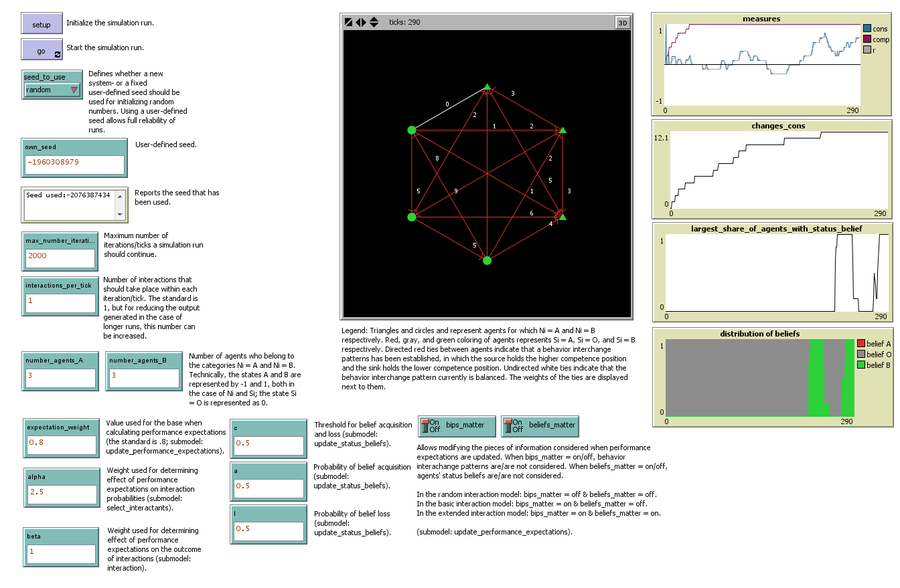An Agent-Based Model of Status Construction in Task Focused Groups (1.1.0)
Modeling work in status construction theory suggests that interactions in small, task focused groups can lead to the spontaneous emergence and diffusion of status beliefs, which link social distinctions to assumptions about competence, in larger populations. This earlier work has focused on dyads as the smallest possible groups in which status beliefs might emerge from face-to-face interaction. In today’s societies, however, many task focused interactions take place in groups larger than dyads. Our model therefore focuses on interactions in groups larger than dyads and enables us to study factors that might facilitate or hinder the emergence of status beliefs in such group contexts.

Release Notes
Associated Publications
Grow, André, Flache, Andreas and Wittek, Rafael (2015) ‘An Agent-Based Model of Status Construction in Task Focused Groups’ Journal of Artificial Societies and Social Simulation 18 (2) 4 http://jasss.soc.surrey.ac.uk/18/2/4.html.
This release is out-of-date. The latest version is
1.2.0
An Agent-Based Model of Status Construction in Task Focused Groups 1.1.0
Submitted by
André Grow
Published Nov 27, 2014
Last modified Dec 05, 2024
Modeling work in status construction theory suggests that interactions in small, task focused groups can lead to the spontaneous emergence and diffusion of status beliefs, which link social distinctions to assumptions about competence, in larger populations. This earlier work has focused on dyads as the smallest possible groups in which status beliefs might emerge from face-to-face interaction. In today’s societies, however, many task focused interactions take place in groups larger than dyads. Our model therefore focuses on interactions in groups larger than dyads and enables us to study factors that might facilitate or hinder the emergence of status beliefs in such group contexts.

